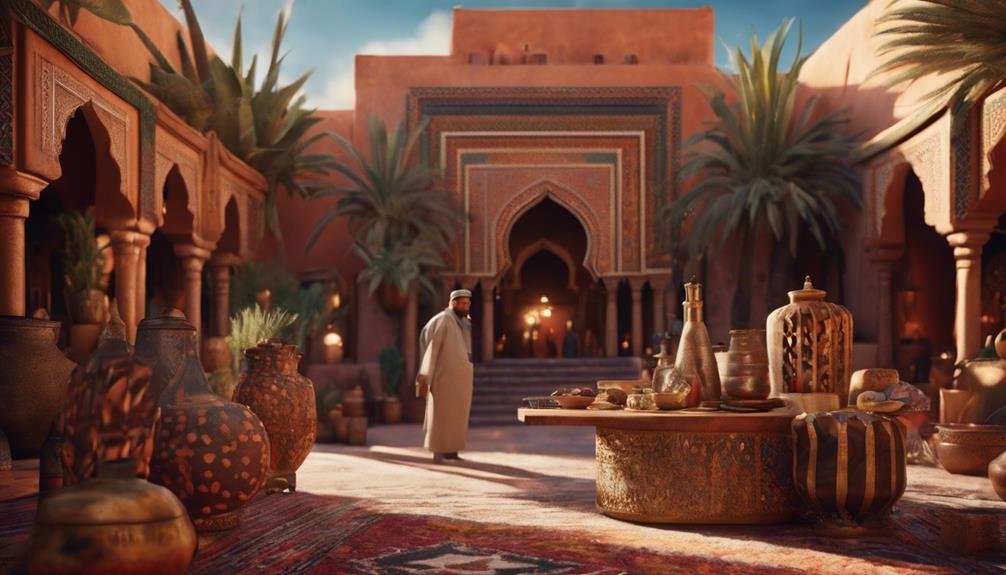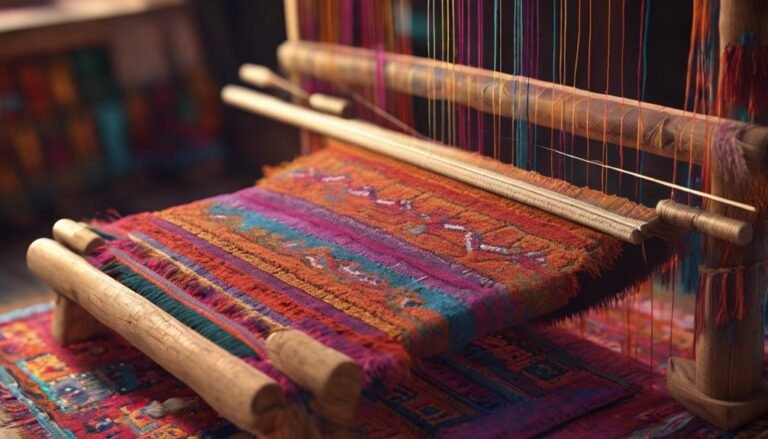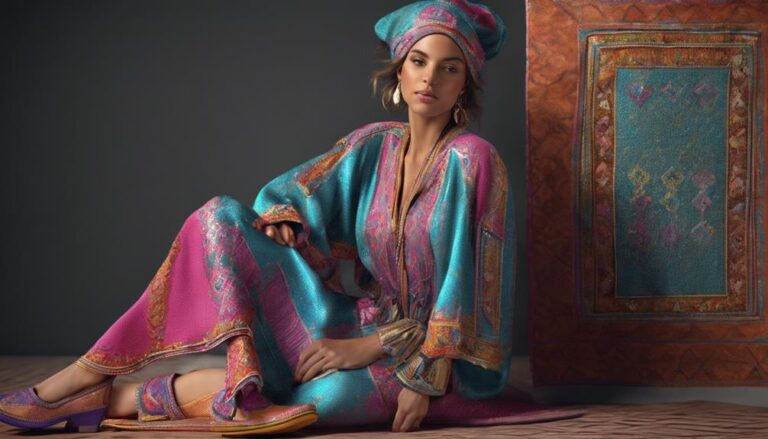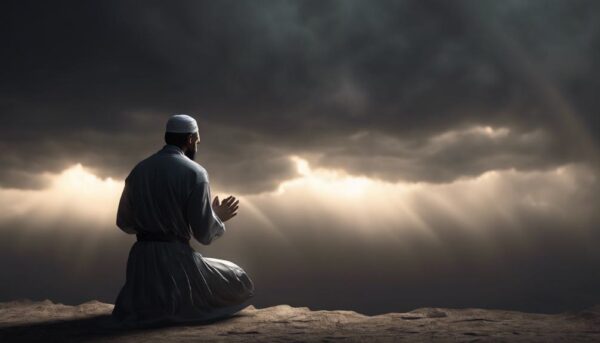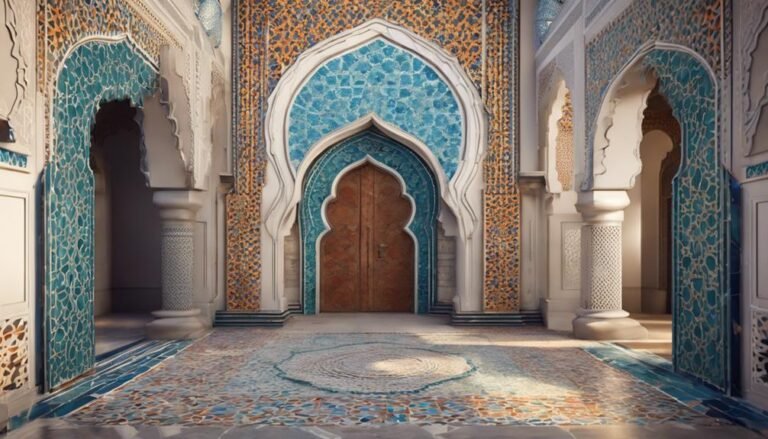Intrigued by the Moroccan film industry? Discover a vibrant world blending traditional Moroccan tales with global influences. Backed by significant government support, local filmmakers thrive with financial aid and tax breaks, attracting international productions. Explore a diverse range of genres, from historical dramas to modern comedies, reflecting societal nuances. Witness emerging talents and acclaimed directors making waves with innovative storytelling. Moroccan cinema shines on the global stage through collaborations and prestigious film festivals. Embrace the opportunities and challenges shaping this cinematic landscape of creativity and growth.
Key Takeaways
- Deep historical roots blending traditional Moroccan storytelling with diverse influences.
- Government support through financial assistance, grants, subsidies, and tax breaks.
- Diverse film genres exploring local customs, traditions, and societal issues.
- Surge in emerging talent and renowned filmmakers gaining international recognition.
- Growing presence at prestigious film festivals and engaging in international collaborations.
Historical Roots of Moroccan Cinema
Exploring the historical roots of Moroccan cinema reveals a complex tapestry of influences and developments that have shaped the industry over the decades. Influential pioneers played a pivotal role in laying the foundation for Moroccan cinema, with directors like Mohamed Ousfour and Ahmed Bouanani leading the way. These visionaries not only created cinematic milestones but also paved the path for future filmmakers to explore diverse narratives and storytelling techniques.
Cross-cultural influences have also been instrumental in shaping Moroccan cinema. The blending of traditional Moroccan storytelling with French, Spanish, and Arabic cinematic styles has led to a unique cinematic identity that sets Moroccan films apart on the global stage. This fusion of artistic movements has allowed Moroccan filmmakers to experiment with different themes and genres, showcasing the rich cultural tapestry of the country.
Government Support and Film Incentives
The Moroccan film industry's growth and sustainability heavily depend on the government's support mechanisms and film incentives. Government funding plays a crucial role in nurturing the industry by providing financial assistance for film production, distribution, and promotion. Through various grants and subsidies, the government encourages local filmmakers to create content that showcases Moroccan culture and talent on a global stage. Additionally, tax breaks are instrumental in attracting international productions to choose Morocco as a filming location, boosting the economy and creating job opportunities within the industry.
However, despite these efforts, there are still challenges that need to be addressed. The allocation of government funds and the effectiveness of incentive programs require continuous evaluation to make sure they're reaching their intended targets and maximizing impact. Transparency in the distribution of funds and the accessibility of incentives to a diverse range of filmmakers are essential for fostering a thriving and inclusive film industry. By refining these support mechanisms, the Moroccan government can further stimulate the growth and creativity of its film sector.
Diversity in Moroccan Film Genres
When exploring Moroccan film genres, consider the rich variety that the industry offers, showcasing a range of cinematic experiences.
You can observe emerging film styles that reflect the evolving landscape of Moroccan cinema, presenting new narratives and visual approaches.
The influence of Moroccan culture on these genres adds depth and authenticity to the storytelling, enhancing the overall cinematic experience.
Genre Variety in Morocco
Within the Moroccan film industry, the diverse range of genres reflects the rich cultural tapestry and artistic expression prevalent in the country's cinematic landscape. The genre variety in Moroccan cinema has evolved over the years, blending traditional storytelling elements with modern filmmaking techniques. This cultural fusion is evident in the way Moroccan filmmakers explore local customs, traditions, and societal issues into their films. From historical dramas that investigate Morocco's past to contemporary comedies that tackle present-day social issues, the Moroccan film industry offers a wide array of genres for audiences to explore and appreciate.
| Genres | Description |
|---|---|
| Historical Drama | Reflects Morocco's rich history and cultural heritage through compelling storytelling. |
| Comedy | Addresses societal issues with humor, providing a light-hearted take on everyday life. |
| Thriller | Keeps audiences on the edge of their seats with suspenseful plots and unexpected twists. |
| Romance | Explores themes of love and relationships, often set against the backdrop of scenic landscapes. |
Emerging Film Styles
Exploring the evolving landscape of Moroccan cinema reveals a dynamic shift towards emerging film styles, showcasing a diverse array of genres and storytelling techniques. Moroccan filmmakers are increasingly incorporating modern techniques and experimental storytelling methods to push the boundaries of traditional cinema.
This shift is evident in the exploration of genres such as psychological thrillers, science fiction, and surrealism, which were previously underrepresented in Moroccan film. Directors are experimenting with nonlinear narratives, unconventional editing styles, and bold visual aesthetics to captivate audiences and offer fresh perspectives on Moroccan society and culture.
Cultural Influences on Cinema
Exploring Moroccan cinema's diverse film genres reveals a rich tapestry woven with cultural influences that shape the unique storytelling landscape in the industry. Gender representation in Moroccan films often mirrors the societal norms and values prevalent in the country, showcasing both traditional and evolving roles. Additionally, storytelling techniques vary widely, incorporating elements of oral tradition, magical realism, and modern narrative structures to captivate audiences.
| Film Genre | Description |
|---|---|
| Drama | Often examines complex interpersonal relationships within the backdrop of Moroccan societal dynamics. |
| Comedy | Blends humor with cultural references, providing a light-hearted take on everyday Moroccan experiences. |
| Historical | Explores Morocco's rich past, highlighting key events and figures that have shaped the nation. |
| Fantasy | Incorporates elements of folklore and imagination, creating enchanting worlds rooted in Moroccan culture. |
Emerging Talent and Renowned Filmmakers
The Moroccan film industry is currently witnessing a surge in both emerging talent and renowned filmmakers, reshaping the landscape of cinema in the country. This influx of new voices and established auteurs is contributing to the diversity and vibrancy of Moroccan cinema.
- Emerging Actors: Young actors are making their mark in Moroccan cinema, bringing fresh perspectives and energy to the screen.
- Directorial Trends: Filmmakers are experimenting with innovative styles and storytelling techniques, pushing the boundaries of traditional Moroccan cinema.
- Renowned Filmmakers: Esteemed directors with a rich history in Moroccan cinema continue to produce compelling and thought-provoking films.
- Cross-Genre Collaborations: There's a growing trend of filmmakers exploring different genres and blending elements from various styles to create unique cinematic experiences.
- International Recognition: Moroccan filmmakers are gaining international acclaim, further solidifying the country's position on the global cinematic stage.
International Collaborations and Film Festivals
With an increasing number of collaborative projects and a growing presence at prestigious film festivals, the Moroccan film industry is establishing itself as a dynamic player in the global cinematic landscape. Through international film partnerships, Moroccan filmmakers have been able to engage in cross-cultural exchange, sharing their unique perspectives and stories with audiences worldwide. These collaborations not only enhance the diversity of the films being produced but also provide opportunities for Moroccan talent to gain exposure on an international stage.
Participation in film festivals plays a vital role in the promotion of Moroccan cinema. By showcasing their work at renowned events such as the Cannes Film Festival and the Toronto International Film Festival, Moroccan filmmakers can attract attention from distributors, critics, and audiences from around the world. This exposure not only helps in securing distribution deals but also contributes to the overall recognition and appreciation of Moroccan cinema on a global scale. Through strategic participation in film festivals, the Moroccan film industry continues to expand its reach and make a mark in the international film community.
Challenges and Future Prospects
Steering through the complexities of funding, audience reception, and evolving industry trends poses significant challenges for the Moroccan film industry as it looks towards shaping its future prospects. Despite its rich cultural heritage and growing international recognition, the industry faces hurdles that need to be addressed for sustainable growth.
- Funding struggles: Securing adequate funding for film projects remains a persistent challenge, limiting the industry's capacity for large-scale productions.
- Industry growth: The need for infrastructure development and investment in technology to keep pace with global standards and expand market reach.
- Global competition: With the rise of streaming platforms and international cinema, Moroccan films must compete on a global scale to attract audiences and recognition.
- Local talent: Nurturing and promoting local talent to foster a pipeline of skilled professionals and diverse storytelling that resonates with both domestic and international audiences.
- Audience engagement: Developing strategies to enhance audience engagement and create sustainable interest in Moroccan cinema to guarantee continued growth and success in the industry.
Conclusion
You've now glimpsed into the intricate tapestry of the Moroccan film industry. Like a mosaic of colors and stories, it weaves together historical roots, diverse genres, and emerging talent.
Despite facing challenges, the industry continues to grow and evolve, showcasing the rich cultural heritage of Morocco on the global stage.
As you reflect on this cinematic journey, remember that the future holds endless possibilities for Moroccan filmmakers to shine even brighter.

The Editorial Team is a passionate group of Morocco enthusiasts dedicated to sharing the beauty, culture, and wonders of this captivating country. With diverse backgrounds and a deep love for travel, we strive to bring you engaging and informative content that inspires your Moroccan adventures. From uncovering hidden gems and sharing local insights to exploring mouthwatering cuisine and showcasing the vibrant lifestyle, our team is committed to providing you with valuable resources and exciting stories that enhance your exploration of Morocco. Join us on this journey as we celebrate the rich heritage and unforgettable experiences that make Morocco truly special.

